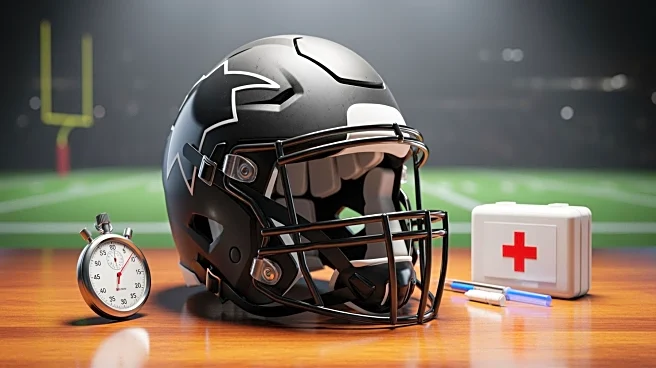What's Happening?
Washington Commanders quarterback Jayden Daniels is facing an uncertain timeline for his return following a left elbow dislocation sustained during a Week 9 game against the Seattle Seahawks. ESPN's Jeremy Fowler reported that the Commanders are not placing
Daniels on injured reserve, as the injury does not require surgery. However, the team is considering a range of outcomes for his recovery, which could see him back in three weeks or extend to five or six weeks, depending on evaluations around the team's bye week. Daniels, who was the 2024 Offensive Rookie of the Year, has already missed games this season due to a sprained knee and hamstring injury, contributing to the Commanders' disappointing 3-6 start.
Why It's Important?
Jayden Daniels' injury and uncertain return timeline are significant for the Washington Commanders, who are struggling with a 3-6 record this season. Daniels is a key player, having led the team to the NFC Championship Game last year. His absence could further impact the team's performance and playoff prospects. The Commanders' management of Daniels' recovery is crucial, as rushing his return could risk further injury, while a prolonged absence might hinder the team's ability to recover their season. The situation highlights the challenges teams face in balancing player health with competitive needs.
What's Next?
The Commanders will continue to assess Daniels' recovery, with potential updates expected around their bye week. The team's performance in upcoming games may influence decisions regarding his return, especially if they remain out of playoff contention. Head coach Dan Quinn and the medical staff will play pivotal roles in determining the best course of action for Daniels' health and the team's strategy moving forward.
Beyond the Headlines
Daniels' injury underscores the physical demands and risks associated with professional football, raising questions about player safety and long-term health. The Commanders' handling of his recovery could set precedents for how teams manage similar situations, balancing immediate performance needs with the long-term well-being of their athletes.
















